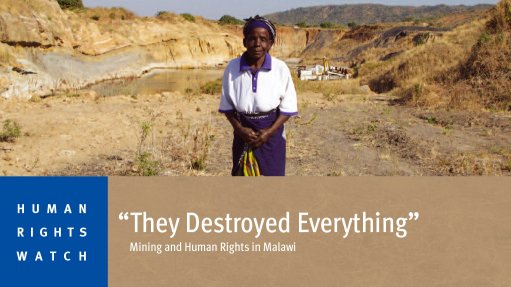
Nagomba E., 75, has lived all her life in Mwabulambo, a small rural community in northern Malawi. Like most women in the area, she works as a farmer to support her family—her husband and three grandchildren who survived their own parents—growing rice, maize, and cassava close to her home.
In 2008, she was surprised to find strangers driving big trucks and carrying heavy machinery near her crop fields. They were workers of Eland, a coal mining company. While the government had already given the company a license to operate a mine right by her village, Nagomba and her neighbors first heard about the mine when they saw the trucks.
When she eventually learned that they were digging coal, she hoped it would bring development to the village and some benefits such as job opportunities and healthcare infrastructure for her and her family. Instead, the mining company cut the community’s existing drinking water supply by destroying the water pipes running through the mining area. They left the community with a few boreholes and river water for drinking and domestic use. Nagomba used to have access to tap water near her house. Since the pipes were destroyed, she has had to make the strenuous hike down to the river about four times a day to fetch water. She worries that the river may be polluted from the mine, and she is uncertain if water from the river is safe to drink.
With little information from the company, Eland Coal Mining Company, or the government about the health and environmental impacts associated with mining or how to protect her family against them, Nagomba and other community members also face considerable health risks, especially in the absence of a community health center.
Report by the Human Rights Watch